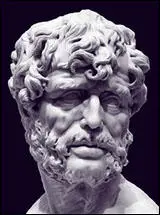
You are looking at buying Piketty’s Capitalism, or maybe you already bought it, but you are daunted by it. Having read it, I can say it is daunting in parts, but it is also great. I highly recommend you get it and read it from front to back. Some of you will have no problem with that. For the rest, I put together this modest guide on how best to read it and finish it and not get bogged down and put it aside.
Here goes.
The introduction is an easy read. If anything, it is highly approachable. Piketty is a good writer, and he does a number of things to make it easy to read. (For example, he brings in a lot of literary references. He also does not assume you are an economist.) For the first 100 pages I thought: why is everyone having difficulty with this book….it’s fun! (Mind you, I am interested in economics, but still….) What I’d say is that this introduction is a good introduction not only to the book but the field of economics in general. Don’t be fooled though: the rest of the book is not as easy to read.
Of the book’s four sections, the first and last are the most approachable for non-economists. Emergency tip: if you are getting bogged down in the middle of the book, feel free to skip to the last section. Reading the first and last section is still rewarding, and you can read the last section without reading the middle. (Not ideal, of course, but better than skipping the last section all together).
That said, there are great passages in the middle, and there are some slow sections in the front and back. (Don’t entirely skip the middle, and likewise, don’t be thrown off by some harder parts in the front or back.) Here’s some examples of what I mean:
While non-economists might want to skip over it, I found his history of data collection — around page 55 — interesting. He is following in the footsteps of some of these other figures in the field of economics while also showing the limits of what analysis can be done, given the lack of data. I think this is an important thing to read if you read his critics. Piketty is aware of the limits of his analysis: something you would not think by reading his critics like I have. It’s good to know this. Also, this supports the case that Piketty makes later in section 4 on why a global capital tax would not just be good for states and a check on capitalism, but also as a way of improving the field of economics. Try to read this part.
Generally, the sections of the book on growth, income and capital are interesting infor the long term perspective they give. I found those worthwhile.
The second section is a good take on how capital has changed over the centuries. If you are going to think about capital and capitalism, it’s worth reading the second section on this history. There were radical changes in capital from the 18th century to the 20th, as capital went from being largely agricultural land or largely housing. In the United States another big capital shift occurred as human capital in the form of slaves rightly disappeared after the American civil war. So, I liked this section: it got me thinking about capital in ways I hadn’t before.
I highly recommend you don’t skim the part on the relationship between slavery and capitalism in around page 158. The value of slaves as part of the overall wealth of the US south is incredible, and the effect the Civil War would have on rightly destroying such capital was significant. You can rightly argue that slaves are human beings and not capital, but from the point of view of the slave owner, they were as much capital as machinery or barns or land. A thought provoking section, I found.
Of the middle section, make sure you read page 166 where Piketty introduces his law of capitalism. Piketty’s laws are a key part of the book. Also at the beginning of page 237 the book moves away from the data to talk about inequality and there is more approachable analysis. For example, around this point of the book, Piketty provides a good analysis of labor vs capital, class, and an insightful review of inequality. In particular his analysis around super managers and super salaries is really good and highly relevant in our times. (I think it also got up the nose of some Silicon Valley types, which I found fascinating.)
Make sure you read the section of the book on inequality: I found it to be one of the better parts of the book.
Overall, beware of section two. In this section, Piketty looks at capital in various parts of the world. If you are an economist, then you really want to focus on this section, because he is making a case for his central idea. However, for a general reader, you might become fatigued in the middle of this part as it tends to feel repetitive. By the way, I think this repetitiveness is really supportive of Piketty’s point. He can argue: hey! look there is a consistency here we can make some conclusions about. If you already support his point, skim away.
If you are skimming madly in the middle, slow down as you get to page 400.
I took a lot more notes towards the end of the book (in the 400s) and I thought this section readable and interesting. For example, in the 400s, Piketty deals with merit. I believe a lot of critics don’t like the book because of how Piketty places limits on virtues of merit and hard work. Piketty argues you can work hard to get rich but someone with a lot of capital can get as rich or much richer with little if any effort. He goes on to show that capitalism is structured such that the rich will…well, get richer. Which means that proportionally the poor get poor. You may believe the rich get richer: here’s the argument as why in a capitalism society that happens.
The other thing I like about the 400s is that Piketty bring in literary examples again. He does that in the first section, and he does it again here, and I found whenever he does this, the book becomes livelier and more interesting.
Still reading? At the last section? Good! In the last section, Piketty focuses on the importance of regulating capital. Now, I am skeptical of what he recommends, even though it is hardly revolutionary (literally or figuratively). Maybe it will happen in the 22nd century. I am willing to believe it will happen, thought. After all, progressive income tax is a fairly new thing, and taxes themselves will continue to evolve, just like they have for centuries. Likewise, freer trade has increased dramatically in the 20th century, and other taxes like VAT taxes have made a big impact. Perhaps a global tax would not be impossible. That said, you should read the last section, because to not do so would be to miss out on a key point of the book.
Ok, that’s my modest guide to reading Piketty’s Capital. Did I convince you to give it a try? Great! Give it a go! If you can avoid the pitfalls in the middle, you’ll find yourself cruising towards the end and find you are done sooner than you think. Book completion aside, when you finish Piketty’s Capital you’ll have a much better understanding of capital in the 21st and capitalism in general. I think this important, because even if you don’t want to think about capitalism, capitalism affects us all. Knowing more about it, knowing how to think about it, and having ideas on how to change it are valuable.
Good luck!
 I have come across the idea of completing the cycle when it comes to cleaning and it has made a difference in how I perceive cleaning.
I have come across the idea of completing the cycle when it comes to cleaning and it has made a difference in how I perceive cleaning.










 Keeping up with contemporary philosophy can be difficult for people who are not dedicated to it. Which is why I am happy to share news about The Stone over at the New York Times. As they describe it:
Keeping up with contemporary philosophy can be difficult for people who are not dedicated to it. Which is why I am happy to share news about The Stone over at the New York Times. As they describe it:







